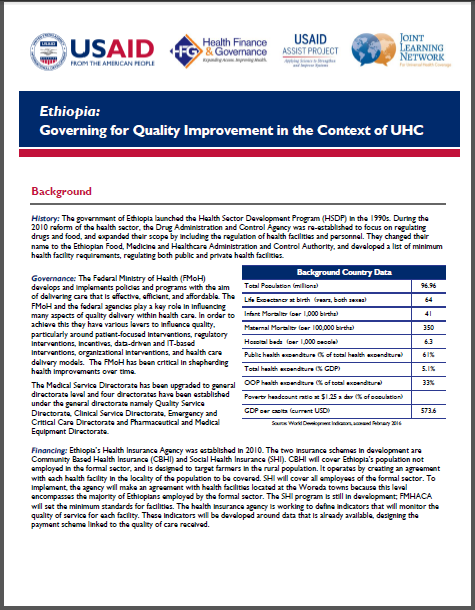Ethiopia: Governing for Quality Improvement in the Context of UHC
Categories: Governance and Leadership, Publications, Universal Health Coverage, Where We Work
Resource Type: Case Study
Authors: Lisa Tarantino, Kelley Laird, Amanda Ottosson, Ruben Frescas, Kedar Mate, Vivian Addo-Cobbiah, Cynthia Bannerman, Paulina Pacheco, Daniel Burssa, Andrew Likaka, Mirwais Rahimzai, M. Rashad Massoud, and Shams Syed
Published: August 2016
Resource Description:
The government of Ethiopia launched the Health Sector Development Program (HSDP) in the 1990s. During the 2010 reform of the health sector, the Drug Administration and Control Agency was re-established to focus on regulating drugs and food, and expanded their scope by including the regulation of health facilities and personnel. They changed their name to the Ethiopian Food, Medicine and Healthcare Administration and Control Authority, and developed a list of minimum health facility requirements, regulating both public and private health facilities.
The Federal Ministry of Health (FMoH) develops and implements policies and programs with the aim of delivering care that is effective, efficient, and affordable. The FMoH and the federal agencies play a key role in influencing many aspects of quality delivery within health care. In order to achieve this they have various levers to influence quality, particularly around patient-focused interventions, regulatory interventions, incentives, data-driven and IT-based interventions, organizational interventions, and health care delivery models. The FMoH has been critical in shepherding health improvements over time.



